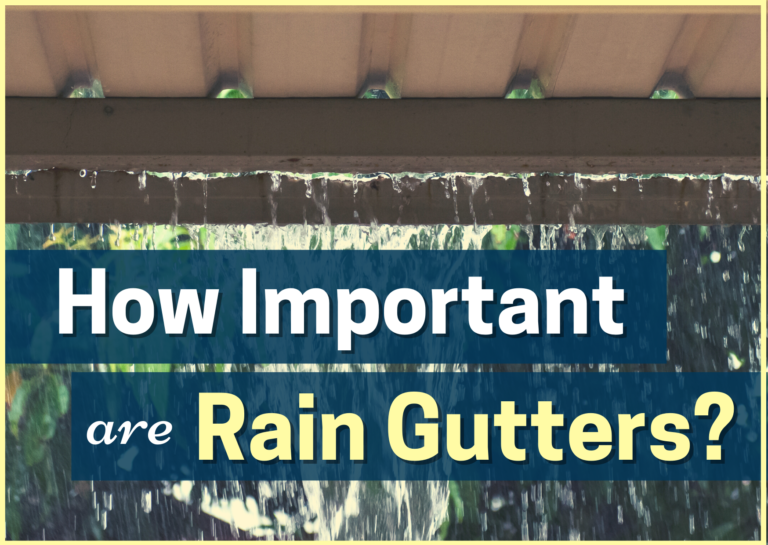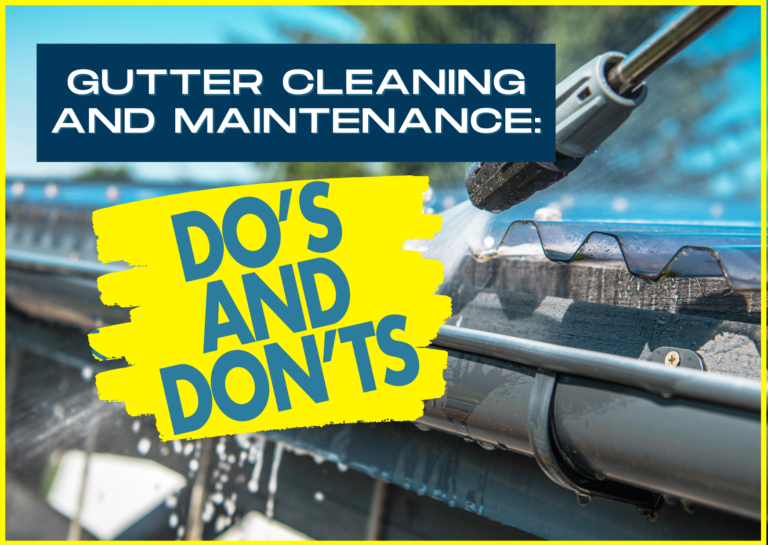Have you ever had that thing in your home that you never really paid much attention to, but when they’re gone, you realize how important they are? Rain gutters could be considered as that. We rarely recognize their function and roles for our homes, but it would be impossible to leave it out.
If your home is experiencing water problems, you might want to check out your gutter system thoroughly. Chances are you have completely forgotten about them, or they might need some fix and repair. It would be best if you never took them for granted because once heavy rain and typhoons happen, these devices are relatively more than vital for your homes.
Hurricane Hazards and Storm Surges in the U.S.
Depending on geographical locations all over America, different calamities and disasters happen now and then. The U.S. National Hurricane Center and Central Pacific Hurricane Center provides detailed and thorough information about the various climate disasters. Knowing these different tendencies will surely make you understand how important it is to prepare your home for such occurrences.
Here’s What You Should Know About Rain Gutters
Rain gutters play one of the most significant roles in keeping your home’s quality, in its exterior surface, most especially. But one of the things that you should know is that not all homes need rain gutters. Depending on your residence area, if you live in a city or town that usually has a parched climate, you can forego this home system.
However, most homes need a high-quality rain gutter system because of rainy weather and stormwater accumulated on the roof. Such an occurrence will possibly cause and trigger some damages in your home, so it is necessary to utilize a rain gutter and have the water redirected elsewhere. Your home’s foundation and structure will be retained, and your sidewalk won’t have any inconvenient pool of water. Rain gutters exist for one specific purpose, and that is to ensure the structural integrity of your property.
How Gutters Work
To elaborate on a rain gutter’s job and role, you need to imagine a scenario when the rainy season has finally started. Gutters are responsible for collecting the rainwater from the roof and position them right into the ground, using a downspout. Water usually drips and travels from the top and into the gutters so that it can escape stagnancy and accumulation on any part of your roof. Such a process and system’s purpose is to protect and keep your home’s basement and foundation from any possible water damage or flooding.
Importance of Rain Gutters
Rain gutters are incredibly more important than most people give them credit for. It fundamentally saves your home from flooding, rainwater accumulation, and water damage. Without it, your roof will keep stuck rainwater as they are collected over the hours or even days of hard rain and storm. It most likely causes rot, deterioration, and mold. One significant effect is on your roofs, which weakens your shingles or any other kind of roof type or model you have.
Naturally, without rain gutters, stagnant rainwater from the roof usually drips down into your windows, siding until the foundation of your home. When your windows are always wet due to the dripping water coming from above, it could cause condensation, which will damage the sill, and later on, it can also impact the quality of your wall interiors. And, of course, the development of grime, mold, algae, and even rusts will follow right after.
In any form, water will cause erosion and significantly impact your home’s foundation’s integrity and structure and may flood your basement as well. Rain gutters are invented to prevent this dangerous scenario from happening. However, one-time installation is not enough for you to think that everything will be perfect forever. Rain gutters also need to be maintained and well-taken care of. Other particles such as leaves, dirt, soils, and debris can block the drains. Hence, it will no longer function as it should. Once these unwanted fragments build up, they will cause water to overflow, and it could lead to further damages in your home.
Another attributed factor that can damage your gutters is the climate and weather. Strong winds, heavy storms, and typhoons will misalign your rain gutters. And when this happens, it will weaken your gutters’ condition and quality, making them feeble and weak. It will break entirely, and your rain gutters system will malfunction.
Tips for Maintaining Rain Gutters
Hiring a professional rain gutter technician and repair personnel is the best way to go if you want to retain your rain gutters’ highest quality. But here are some helpful tips on how to inspect and maintain your gutters regularly before hiring a professional rain gutter specialist.
1. Clean your gutters regularly.
Every few months, or depending on your schedule, you should regularly clean the rain gutters of your home to ensure that rainwater from the roof can flow freely. There are many ways to do this, but the most effective one is to climb up a ladder, use a gutter trowel, and remove the debris or leaves you can find along the gutters. After this, you can test the gutter’s space’s clearance by flushing water through a hose. Remember that you can always hire professional gutters cleaners to perform this task for you. Save yourself from the time and trouble and contact your trusted rain gutters contractor today.
2. Always make a habit of inspecting your downspouts.
Downspouts are likely to experience clogs over time. Leaves, dirt, soils, and grimes are usually built upon the downspout, preventing water from flowing down. This results in water getting stuck on the top and spilling on the sides instead, during hard rain and typhoons. Do note that some downspout designs are hard to inspect, but one easy way to do so is to use a garden hose supported with a pressure nozzle. Just let it flow down into the downspout and check if there are clogs. This will also clear out the pathway if there are indeed some clog issues.
3. Maintain and retain quality.
If you have the time to inspect your home, start with your gutters. Could you see if there are any rusts, corrosion, water dropping, or cracks? If you ever see any of these abnormal occurrences, you will need to troubleshoot them using different methods or solutions. You can use a gutter seal to fill up cracks, holes, and gaps. A gutter repair done by professionals is the best solution if your gutter condition is more severe and needs extensive repair. Adding gutter brackets or replacing gutter parts can be safely done by an expert repairman.
4. Don’t forget to install gutter guards so that debris won’t build up in the gutters.
Gutter guards play a valuable role in your gutters. It kind of acts as the strainer, which prevents leaves, twigs, or debris from falling into your gutters. These are placed over or inside the trenches, and it would help lessen the times for cleaning. You won’t have to keep scraping off the insides of your rain gutters.
5. If possible, extend your downspouts.
Downspout extensions usually come in handy. Most of the usual downspouts only have splash blocks. Their purpose is to channel the rainwater away from your home for a couple of distance. However, these splash blocks can be displaced when typhoons occur or are firm, and heavy water flows happen. It is highly advisable to check your splash blocks for their positioning. Otherwise, water could pool around your home’s foundation and even enter your home’s base floors. One smart alternative to using splash blocks is downspout extensions. They are designed as flexible tubes that are connected to your current downspouts. Their primary purpose is to redirect the water away from your home into a farther place.
Different Kinds of Gutters
Depending on your home’s needs and preferences, most gutter companies offer different kinds of gutters. Here are the types of gutters that you can choose to match with your home’s design:
1. One-piece gutter
Also known as the traditional kinds of gutters that most homeowners use in their homes, you can find this with no slope and a roll former. The different type offers a customized design depending on the structure.
2. Two-piece gutter
Installed by professional gutter specialists, this kind of gutter requires waterproofing techniques and methods as well. They function highly but should be done by gutter professionals, so call your contractor to inquire about their installation services. Thanks to the waterproofing method, the possible infiltration that might happen in the joint between the gutter and apron will be avoided.
3. Built-in gutter
Roofs with lower edges are the ones that use these built-in gutters. They are also referred to as gutter liners. This kind of gutter is conventional for many older homes in America.
4. Shell and Liner gutter or Double Bottom
Designed with a more beautiful appearance, this shell and liner gutter showcases a decorative outside shell with a custom profile. There is a tapered gutter liner that works to drain the rainwater from your roof.
Whichever kind of gutter you prefer, it would be best to contact a professional gutter staff and ask for their expert advice. Gutters need to match the design of your home and roofs.
Why Installing Rain Gutters is a Good and Smart Investment
Just like your other home improvement systems and projects, installing rain gutters also entails financial benefits, especially in the long run. They are always perceived as a good and smart investment by many home improvement experts. Suppose you live in an area where rain is common throughout the year; gutters will prevent other home issues, which will lead to more costs and repair fees in the future. You should never pass up on installing rain gutters for your roofs, and here are the reasons why:
1. It can protect your basement from floods.
Rainwater can easily pool around your home’s foundation and entry grounds. It will seep through holes, cracks, and other areas of your home, which will then lead to the basement. This is an ugly scenario waiting to happen if you fail to secure high-quality rain gutters on your roofs. The gutter’s purpose is to channel the water away from your home into its rightful sewage and drainage system. This will prevent uncontrollable seepage, and you won’t have to worry about your home walls and grounds’ interior condition. You can contact your gutter installer provider and inquire about downspouts, splash blocks, and downspout extensions.
2. It will help keep you and your family safe and dry.
Since water will not be accumulated and stagnant on parts of your roofs, you and your family won’t have any chances of getting wet by getting soaked with this waterfall coming from above. Gutters play an essential role in collecting rain and transferring it somewhere else, without unnecessary spills and mess. You will stay dry in all parts of your home.
3. It prevents decay and deterioration.
Some parts of your home’s exterior are not waterproof since they may have been lined with tar paper or plywood and other materials. Sidings and shingles are often connected and installed over these tools. It is quite natural to have spaces and gaps in between these materials, so water will have a chance to seep through those areas, unfortunately. Your siding and roofs will frequently experience water, and the leaks will start to deteriorate and rot the existing materials of your home’s top. Gutters will stop this from happening. The wooden parts of your home won’t have to experience water seeping through because your gutters have already played their essential role in diverting water away.
4. It can physically improve the neat look of your home.
Unwanted water dripping from the top of your house is quite a mess to look at. It gets sloppy, making dirt and residue on your sidings. After some time, algae and grimes will build up in those places, making your home look dirty. It will also require you to regularly clean and scrub such areas. Not to mention, paints will be removed and start to chip off. This will lead to another set of repair costs for repainting your home’s exteriors. No matter how beautifully painted your home will be, this unfortunate tendency will create a messy outcome. Gutters, however, will consolidate the rain. It will effectively retain the physical attribute of your home without extra effort. Clean your gutters regularly to ensure having your entire home looks neat as always.
5. It can guard against mold build-ups.
If your home experiences too much moisture, mold is most likely to form over time. Due to humidity and inadequate ventilation, some areas in your home will have molds, affecting your home’s curb appeal. Your walls that experience water leaks will start having molds, and they are difficult to remove and are even a threat to your family’s health. They have to be spotted early and scrubbed off to be removed. Mold development will not happen once you have a reliable gutter system in your home.
6. It will protect your home’s landscape.
A large amount of water can ruin and erode the soil. If you have some garden, plants, grass, and vegetation, this excessive downpour of waters will damage your landscape. Even when they do not directly pour right down into the plants, the pool of water will run off into your yard and gardens. Rain gutters entail the best control feature for water being evenly distributed elsewhere and in some areas of your yard. This is a more suitable situation for your plants. Your rain gutters should pass through and escape the parts of your landscape to ensure your landscape’s quality.
7. It can eliminate insects.
Stagnant water is an appealing home for many insects like mosquitoes, termites, and other pests. They are very attracted to live and stay in these pools of water. Insects are generally unpleasant and annoying. They are even harmful to you and your family’s health, as some pests could cause diseases. They also can start to eat away at your home’s exterior materials like wood. It is a disaster to have these pests and insects lurking in any area of your home. Eliminate this from happening by using gutters. With it, there will be no stagnant water in any part of your roof, so you don’t have to worry about insects and home pests.







